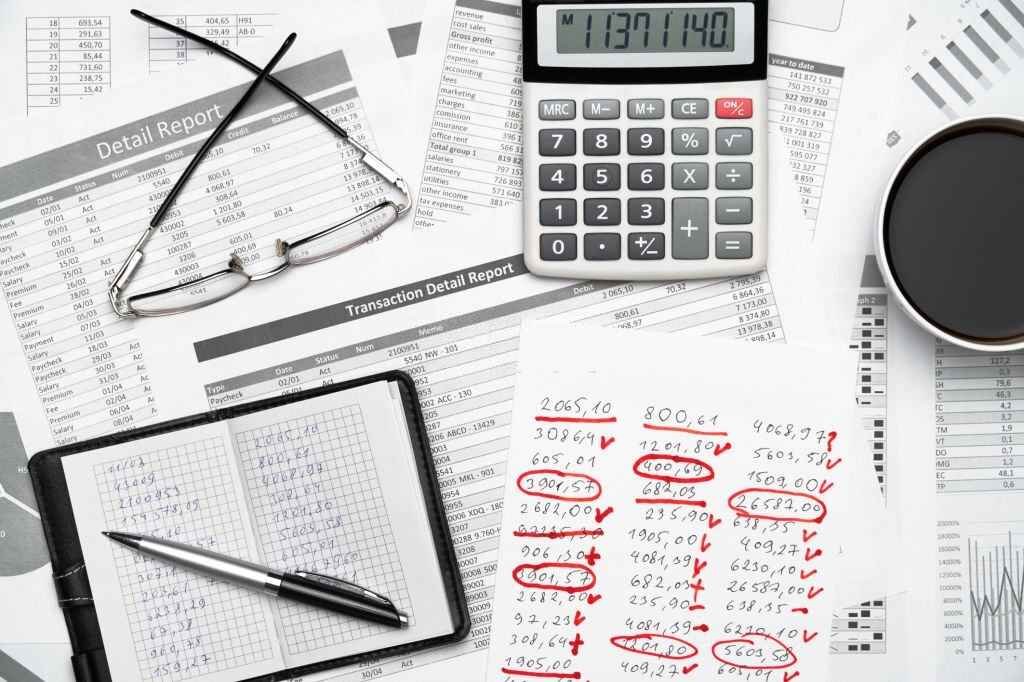Accounting Errors: If you’re going to err, err on the side of profit. That’s the motto small business owners should live by. But mistakes happen, and many of them can ruin your bank account.
Understanding the most common accounting mistakes can help. If you’re worried that you may be committing accounting errors, don’t worry. We’re here to make sure you don’t ruin a good thing.
Here are 8 common small business accounting errors that you need to avoid.
Assuming Profit is a Cashflow (Accounting Errors)
As a small business owner, it is important to avoid making accounting errors that can lead to a decrease in profit. One common error is assuming that profit is a cash flow. While it is true that cash flow is important for a business, it is not the only factor that determines profit.
Profit also depends on revenue and common business expenses. Therefore, it is important to track all three of these factors to make accurate financial statements. To get a better understanding of this, click here.
Forgetting About the Value of Bookkeeping
Many small business owners believe that bookkeeping is only necessary for large businesses, but this is not the case. Bookkeeping is important for all businesses, no matter the size because it provides an accurate record of all financial transactions.
This record can be used to track expenses, income, and profitability over time. Without bookkeeping, it would be difficult to know how your business is performing financially and make informed decisions about future growth.
Luckily, there are many software programs and apps available that make bookkeeping easy and affordable for small businesses. Find one that fits your needs and make sure to stay on top of your bookkeeping to avoid this common mistake.
Mixing Up Contractors and Employees
As a small business owner, it’s important to know the difference between contractors and employees to avoid accounting errors. Contractors are usually hired on a project basis and are not considered part of the company’s staff. Employees, on the other hand, are hired to work for the company regularly and are typically considered part of the company’s staff.
One of the biggest mistakes you can make is mixing up contractors and employees when it comes to your accounting. If you mistakenly classify an employee as a contractor, you may end up paying them less than you owe in taxes. On the other hand, if you mistakenly classify a contractor as an employee, you may end up paying them more than you owe in taxes.
To avoid this mistake, be sure to keep accurate records of who is a contractor and who is an employee. You should also have your contractor fill out a W-9 form so that you have their accurate tax information on hand.
Trusting the Wrong People
No one is perfect, and that includes small business owners. Unfortunately, when it comes to accounting, even a small error can have major consequences. The good news is that there are ways to avoid making mistakes in the first place. One of the most important things you can do is to trust the right people with your finances.
Work with an experienced accountant or bookkeeper who can help you keep track of your income and expenses. Keep good records and review them regularly.
And, if you’re ever in doubt about something, don’t be afraid to ask for help. By taking these precautions, you can help ensure that your small business stays on the path to success.
Not Hiring an Accounting Firm
Small businesses often make the mistake of not hiring an accounting firm to help with their finances. This can lead to several problems, including making errors in financial statements and not having a clear picture of the company’s financial health.
An accounting firm can help avoid these problems by guiding financial reporting and bookkeeping. They can also help spot potential problems and offer solutions to keep the business on track. When it comes to financial success, don’t skimp on accounting help- it could save your business down the road.
Not Setting Aside for Savings (Accounting Errors)
Many small business owners make the mistake of not setting aside for savings, and this can be a costly mistake. If you don’t set aside money for savings, you may find yourself in a difficult situation if you have an unexpected expense. This can force you to take out a loan or use credit cards to pay for the cost, which can put you further in debt.
Additionally, not having savings can prevent you from taking advantage of opportunities to invest in your business, such as new equipment or expanding your premises. To avoid this mistake, make sure to set aside money for savings each month. Even if it’s only a small amount, it can add up over time and give you a cushion in case of an unexpected cost.
Neglecting Small Transactions
Running a small business is no easy feat and there are a lot of things that you have to keep track of, from inventory to payroll. One common error is neglecting small transactions. This can happen when you are invoicing customers or paying suppliers and you forget to include a small charge or discount.
These may seem like insignificant amounts, but over time they can add up and put a dent in your profits. To avoid this, always make sure to double-check your invoices and pay close attention to the details. This way you can ensure that all of your transactions are accounted for and you can avoid leaving money on the table.
Mixing Up Personal and Business Expenses
One of the most common small business accounting errors is mixing up personal and business expenses. This can happen when business owners use their personal credit cards or bank accounts for business purposes, or when they commingle personal and business funds in a joint account.
To avoid this mistake, small business owners should open separate business and personal accounts and use them exclusively for each purpose. They should also avoid using their personal credit cards for business expenses and should keep meticulous records of all business expenses.
Learn to Avoid Small Business Accounting Errors
If you are a small business owner, avoid these common small business accounting errors. Understand your business entity type and choose the right accounting method. Keep good records and reconcile your accounts regularly.
Understand debits and credits, and use accounting software to automate transactions and record-keeping. Seek professional help when you need it.

